Share
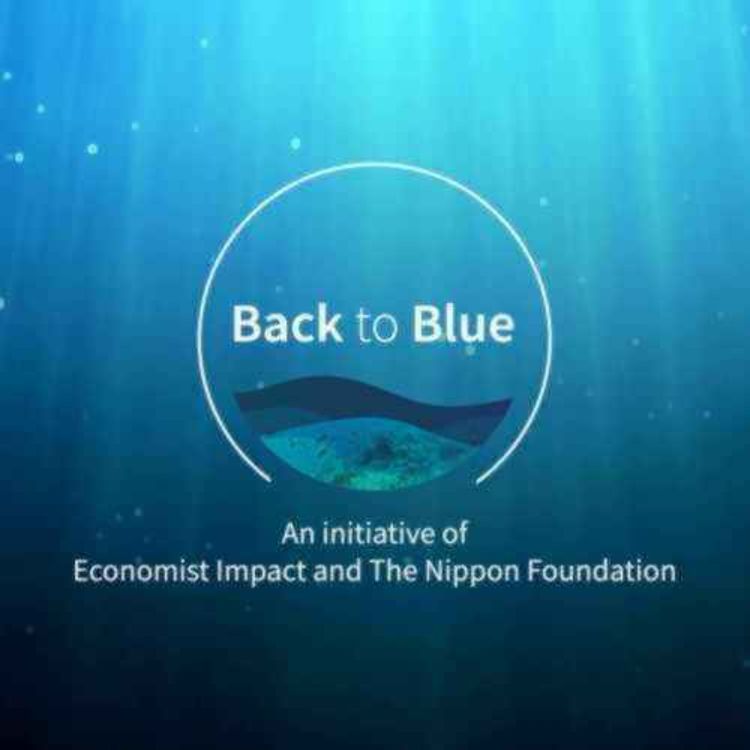
Asia Perspectives by Economist Impact
Limiting forever chemicals in drinking water
On March 14th 2023 the US Environmental Protection Agency (EPA) announced a proposal to establish legally enforceable levels for six types of ‘forever chemicals’ known as per- and polyfluoroalkyl substances (PFAS). It is expected to prevent thousands of deaths and reduce tens of thousands of serious illnesses attributable to PFAS.
The rule would require public water systems to monitor PFAS levels, notify the public of these and reduce them if exceeding the proposed standards. Developed over several years and grounded in the authority that the EPA has from US Congress, through the Safe Drinking Water Act, the goal is to issue a final PFAS drinking water standard by the end of 2023 or early 2024. This will result in a standard to which all water systems in the US must adhere.
Sarah Doll, national director for Safer States, an NGO fighting pollution, speaks to Naka Kondo, the lead editor of Back to Blue about the significance of the EPA proposal to limit PFAS in US drinking water - and what needs to happen next.
Follow the Back to Blue series for more podcast episodes, or visit backtoblueinitiative.com for more content.
Back to Blue is an initiative of Economist Impact and The Nippon Foundation.
More episodes
View all episodes
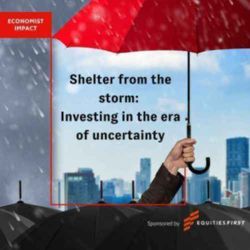
73. From silk road to skyscrapers: Charting the investment landscape between Asia-Pacific and the United Arab Emirates
29:16||Ep. 73The signs of a thriving business and investment ecosystem between Asia-Pacific and the United Arab Emirates (UAE) are hard to miss. The two regions are strengthening ties through strategies such as trade agreements and infrastructure investments. Asian companies are interested in becoming a part of the UAE’s free trade zones.What is the current state of the UAE-Asia Pacific relations as well as the future prospects? What are the implications for some of the key players? How can investors and businesses navigate the opportunities and risks within this transforming landscape?Our guests are:● Pratibha Thaker, Editorial Director, Middle East and Africa, Economist Intelligence Unit● V. Shankar, Co-founder and CEO, Gateway Partners“Shelter from the storm: Investing in the era of uncertainty” is a ten-part podcast series, supported by EquitiesFirst.The episode is hosted by Bilge Arslan, analyst, Policy and Insights at Economist Impact.The podcast has been prepared for informational purposes only. This episode is not an offering of a financial product or investment advice. It is not intended for residents in any jurisdiction where its use is not authorised or is unlawful.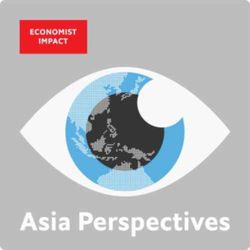
Fandom and the creative economy
36:53|In this special podcast series on culture and the creative economy, Naka Kondo, editorial lead for global initiatives at Economist Impact speaks to Sam Ford, Executive Director, accelerate KY, Kentucky, USA research, affiliate MIT comparative media studies, and Nathalie Collins, who is a senior lecturer at Edith Cowan University School of Business and Law to try to understand some of the foundational elements of today's fandom and the creative economy.This episode is part of "culture and the creative economy", a three-episode series, supported by Netflix.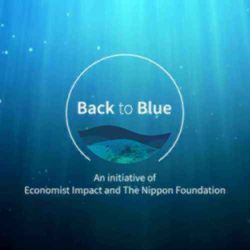
72. Overview: Roadmap to close the marine data pollution gap
25:02||Ep. 72Ocean pollution is a complex and multifaceted problem. It threatens ecosystems, human health and economies, but a lack of data about its impact means relatively little is being done to prevent and address it. That’s why Back to Blue has published A global ocean free from the harmful impacts of pollution: Roadmap for action. Here to talk about the roadmap and why it matters is Jessica Brown, Back to Blue’s head of engagement.Follow the Back to Blue series for more podcast episodes, or visit backtoblueinitiative.com for more content.Back to Blue is an initiative of Economist Impact and The Nippon Foundation.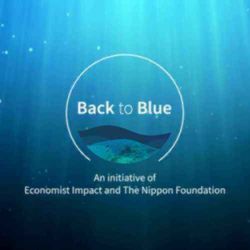
71. Clean construction: Tackling marine chemical pollution through technology
19:15||Ep. 71"The core concept really is that everything that gets discharged to the sewer, ends up in the environment, in one way or another" (Andrew Crimston, Founder and CEO of Washbox Global)Chemical pollution in the ocean tends to be much less talked about than the highly visible plastics pollution, but is as equally, if not even more harmful. Back to Blue have published a comprehensive 100-page report on the state of marine chemical pollution in “The Invisible Wave”. This episode will give a deep-dive into marine chemical pollution in the construction industry. Back to Blue's lead editor Naka Kondo speaks to Andrew Crimston, Founder and CEO of Washbox Global.Follow the Back to Blue series for more podcast episodes, or visit backtoblueinitiative.com for more content.Back to Blue is an initiative of Economist Impact and The Nippon Foundation.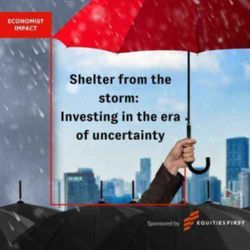
70. Funding impact in Asia-Pacific
27:44||Ep. 70Increasingly more financial players are interested in tapping into the potential of ESG and impact investments in Asia-Pacific. To address social and environmental challenges effectively, key stakeholders need to ensure that impact capital is deployed strategically, matching with the right opportunities.What are the opportunities investors can leverage to generate social and environmental value along with economic returns? What is the role of innovative models of business and financing in unlocking the potential of impact-driven investments?Our guests are:● Hannah Lee, Head of Asia-Pacific ESG Equity Research, J.P. Morgan● Natasha Garcha, Senior Director of Innovative Finance, Impact Investment Exchange“Shelter from the storm: Investing in the era of uncertainty” is a ten-part podcast series, supported by EquitiesFirst.The episode is hosted by Bilge Arslan, analyst, Policy and Insights at Economist Impact.The podcast has been prepared for informational purposes only. This episode is not an offering of a financial product or investment advice. It is not intended for residents in any jurisdiction where its use is not authorised or is unlawful.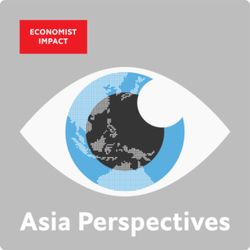
Behind the Scenes: the sustainability of Australia's production ecosystem
21:33|Australia’s screen industry has been on a trajectory of an investment boom and demand for skilled production workers. This podcast features three industry experts Ken Crouch (head of industry development at Screen Australia), Carly Heaton (head of scripted at Fremantle, Australia), and Ishmael Khan (director and writer) to explore the current state of Australia’s production growth, flow-on effects for the sector, the role of training and capacity-building programs to address critical skills shortages, and what more is required to support the long term sustainability of the sector.This episode is part of "culture and the creative economy", a three-episode series, supported by Netflix.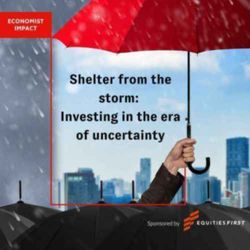
70. Unlocking entrepreneurship in Asia-Pacific
26:00||Ep. 70On the global stage, India and China are becoming key players in terms of total number and valuation of startups, following the United States. Indonesia and Vietnam’s progress have been remarkable as well. Can Asia-Pacific create the next generation Silicon Valley and become a centre for entrepreneurship and innovation? In this episode, we talk about the startup ecosystem in Asia-Pacific. We also discuss how investors and founders can unlock entrepreneurship opportunities in the region. Our guests are:Amra Naidoo, Co-Founder and General Partner, Accelerating AsiaJeffrey Paine, Co-Founder and Managing Director, Golden Gate Ventures“Shelter from the storm: Investing in the era of uncertainty” is a ten-part podcast series, supported by EquitiesFirst.The episode is hosted by Bilge Arslan, analyst, Policy and Insights at Economist Impact.The podcast has been prepared for informational purposes only. This episode is not an offering of a financial product or investment advice. It is not intended for residents in any jurisdiction where its use is not authorised or is unlawful.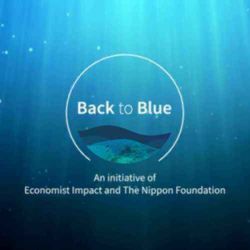
69. Ensuring the role of science in the plastics treaty: insights from Global Plastics Summit
17:05||Ep. 69At our inaugural Global Plastics Summit held on Oct 11-12th in Bangkok, Naka Kondo, the lead editor of Back to Blue Initiative spoke to Winnie Lau, project director, preventing ocean plastics at The Pew Charitable Trusts and Margaret Spring, chief conservation and science officer and Monterey Bay Aquarium. They discussed their impressions of the summit, and shared their recommendations and aspirations for the role of science and evidence in the treaty moving forward. Follow the Back to Blue series for more podcast episodes, or visit backtoblueinitiative.com for more content.Back to Blue is an initiative of Economist Impact and The Nippon Foundation.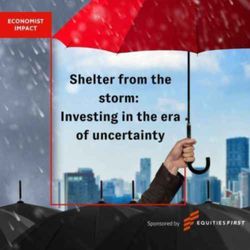
68. India’s time to shine? Opportunity and risk in India
29:26||Ep. 68In the last six years, India’s business environment rankings rose 10 places among the 82 countries assessed by the Economist Intelligence Unit (EIU). Expanding investments will be crucial in maintaining the country’s favourable position for investors. To achieve this, India needs to keep improving regarding ease of doing business and governance transparency. Transforming the infrastructure to meet the needs of a growing economy is also key. In this episode, we discuss business and investment opportunities and risks in India. Our guests are: Taimur Baig, Managing Director and Chief Economist, Group Research at DBS BankBen Mathias, Managing Partner at Vertex Ventures SEA & India“Shelter from the storm: Investing in the era of uncertainty” is a ten-part podcast series, supported by EquitiesFirst. The episode is hosted by Bilge Arslan, analyst, Policy and Insights at Economist Impact.The podcast has been prepared for informational purposes only. This episode is not an offering of a financial product or investment advice. It is not intended for residents in any jurisdiction where its use is not authorised or is unlawful.